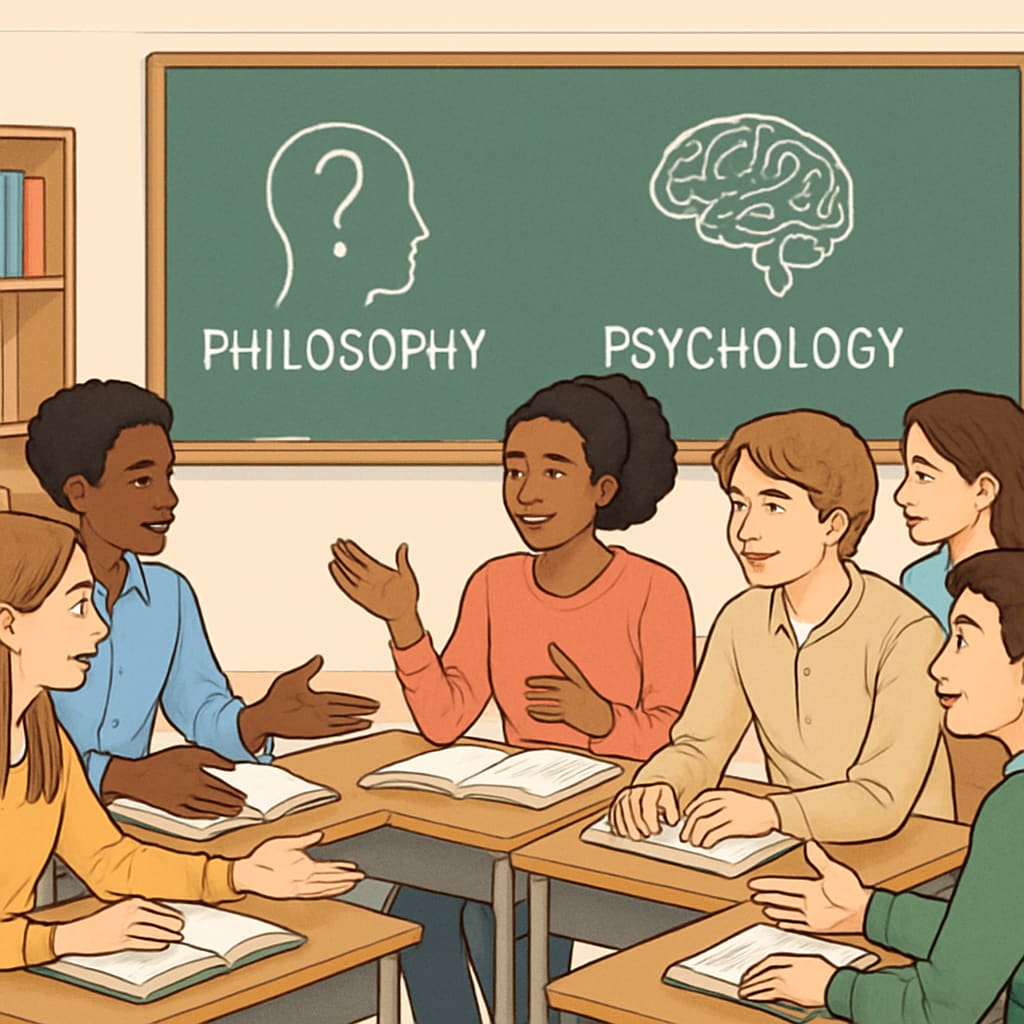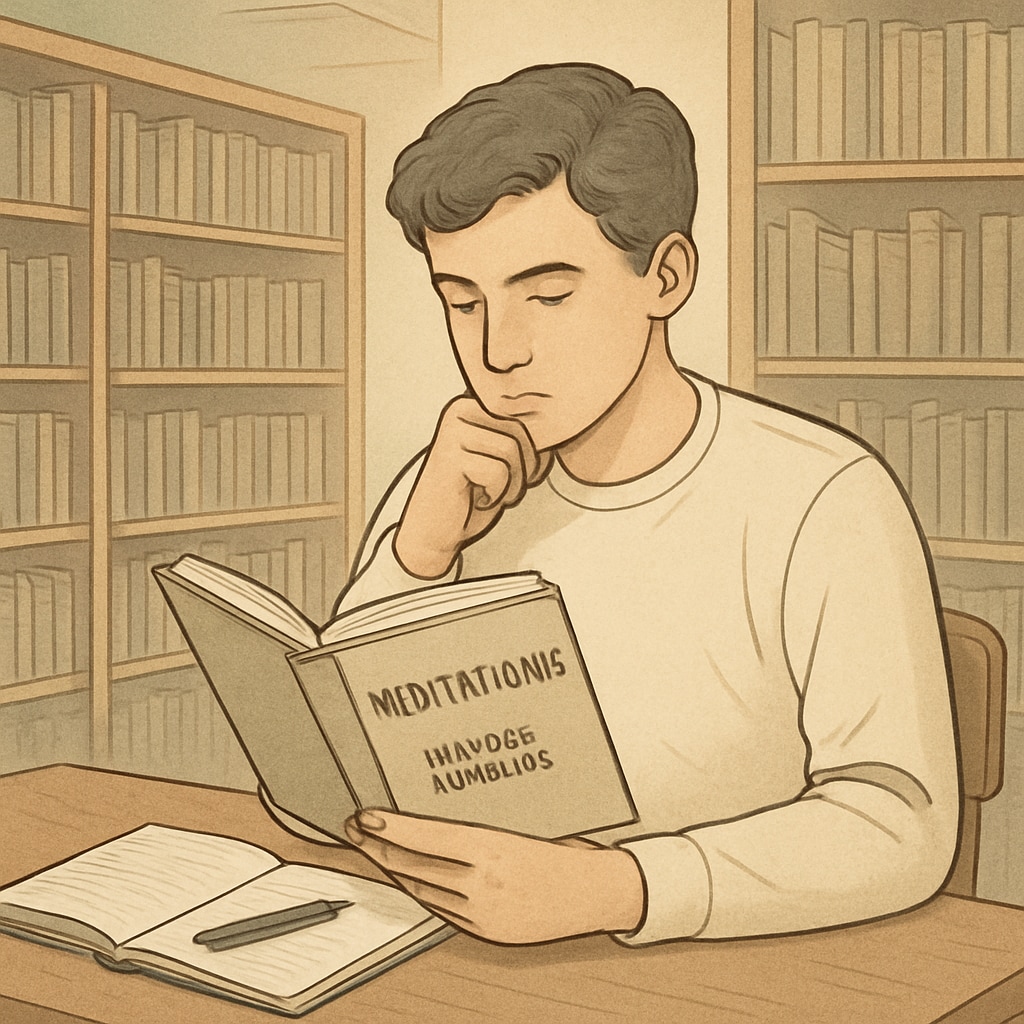Introducing psychology, philosophy, self-learning resources in the K12 stage can empower young minds with essential tools for self-discovery and critical thinking. These disciplines help students understand human behavior, cultivate ethical reasoning, and explore the deeper questions of life. However, finding suitable resources and methods for young learners requires careful curation. This guide explores how educators and parents can inspire K12 students to embark on a meaningful journey through psychology and philosophy.
Why Teach Psychology and Philosophy in K12 Education?
Psychology and philosophy are often considered advanced fields of study, but their foundational concepts can be easily introduced to younger students. For example, psychology helps children understand emotions, relationships, and mental health, while philosophy enhances their ability to question, reason, and develop a sense of purpose. These subjects provide a framework for understanding themselves and the world around them, fostering resilience and intellectual curiosity.
- Psychology: Encourages emotional intelligence, mental health awareness, and interpersonal skills.
- Philosophy: Develops critical thinking, ethical reasoning, and the ability to question assumptions.
- Combined Impact: Promotes holistic intellectual and emotional development.

Recommended Resources for Psychology and Philosophy Self-Learning
Choosing the right resources is crucial for introducing psychology and philosophy concepts to K12 students. Below are some age-appropriate materials and tools:
For Elementary Students (Ages 6–12)
At this stage, students can explore basic ideas related to emotions, behavior, and ethical choices. Suggested resources include:
- “The Way I Feel” by Janan Cain: A colorful book that introduces emotions and how to express them.
- Thoughtful Games: Simple board games or card games that involve decision-making and reasoning.
- Britannica’s Emotion Guide: A beginner-friendly overview of emotions.
For Middle School Students (Ages 13–15)
Middle school students can delve deeper into psychological theories and philosophical questions. Recommended resources include:
- “Man’s Search for Meaning” by Viktor Frankl: A thought-provoking book about purpose and resilience.
- Online Philosophy Courses: Platforms like Coursera offer beginner-level courses tailored to younger audiences.
- Psychology Overview on Wikipedia: A concise introduction to psychology concepts.
For High School Students (Ages 16–18)
High school students are ready for more advanced discussions and readings. Suggested materials include:
- “Meditations” by Marcus Aurelius: A classic text on Stoic philosophy.
- TED Talks: Engaging presentations on topics like mental health and ethical dilemmas.
- Psychological Experiments: Simple experiments to explore concepts like memory, perception, and bias.

Effective Methods for Introducing Psychology and Philosophy
In addition to resources, the methods used to teach psychology and philosophy are equally important. Consider the following approaches:
- Interactive Discussions: Encourage students to pose questions, share opinions, and debate ideas.
- Real-Life Applications: Relate psychological and philosophical concepts to everyday experiences, such as friendships or ethical dilemmas.
- Storytelling: Use narratives and parables to illustrate complex ideas in a relatable way.
By integrating these methods, educators and parents can make these subjects engaging and accessible for K12 learners.
Conclusion: The Lifelong Benefits of Learning Psychology and Philosophy
Introducing psychology and philosophy during the K12 stage lays a solid foundation for lifelong learning and personal growth. These subjects teach students how to think critically, empathize with others, and navigate the complexities of life. With the right resources and methods, educators and parents can guide young minds towards a deeper understanding of themselves and the world around them.
As a result, psychology and philosophy are not just academic disciplines—they are tools for building a better future, one thoughtful and self-aware student at a time.
Readability guidance: Use short, clear paragraphs to ensure accessibility for diverse reading levels. Incorporate lists to summarize key points and maintain a logical flow throughout the article.


